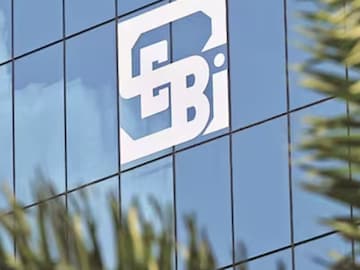SOURCE : NEW18 NEWS
Last Updated:January 16, 2025, 17:36 IST
This dramatic price movement triggered an investigation by Sebi, which has now barred the company Pacheli Industrial Finance Limited (PIFL), along with six associated entities, from accessing the securities market until further orders.
The unusual price movement in PIFL’s stock was flagged by Sebi’s surveillance system.
The share price of a company surged by 372 per cent in just over a month, from Rs 21.02 on December 2, 2024, to Rs 78.2 on January 16, 2025, resulting in an absurdly high price-to-earnings (P/E) ratio of 4,05,664. This dramatic price movement triggered an investigation by the Securities and Exchange Board of India (Sebi), which has now barred the company, Pacheli Industrial Finance Limited (PIFL), along with six associated entities, from accessing the securities market until further orders.
In an interim order issued on January 16, 2025, Sebi indicated that the company was involved in a potential pump-and-dump scheme. The regulator pointed to a preferential allotment that seemed orchestrated to benefit a select few at the cost of other shareholders. Notably, the surge in stock price was inconsistent with the company’s financial fundamentals. PIFL reported no operating income in FY22 and FY23, and its Rs 1.07 crore revenue in FY24 came primarily from bad-debt recovery and loan interest.
related stories
In the order, SEBI’s Whole-time Member Ashwani Bhatia noted that all actions of the company’s management pointed towards a “well-thought out plan to build a castle in the air”. Bhatia also observed that “prima facie” it appeared that the company’s statutory auditor GSA and Associates LLP may have been acting in concert with the management and that the auditor’s role needs further investigation.
He wrote, “Situations like the one at hand raise fundamental questions about SEBI’s role as the securities market regulator, statutorily mandated to safeguard the interest of the investors.”
The unusual price movement in PIFL’s stock was flagged by Sebi’s surveillance system. Between December 2024 and January 2025, the stock’s sharp rise coincided with the preferential allotment, which raised concerns about possible market manipulation. SEBI’s interim findings suggested a disconnect between PIFL’s skyrocketing valuation and its financial health, highlighting an extraordinarily inflated P/E ratio.
This case underscores Sebi’s responsibility to act swiftly and decisively to prevent such schemes, ensuring the integrity of the securities market and safeguarding investor interests.








